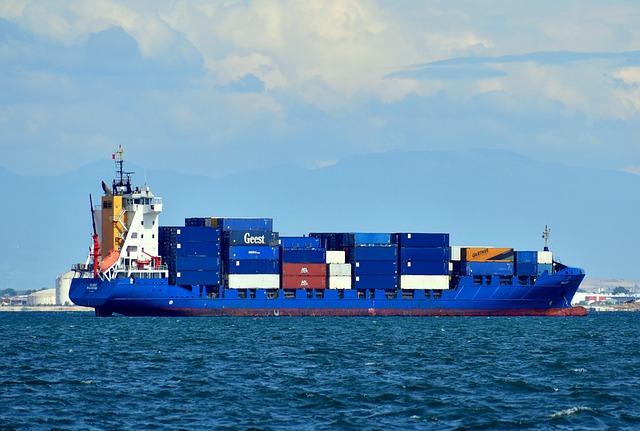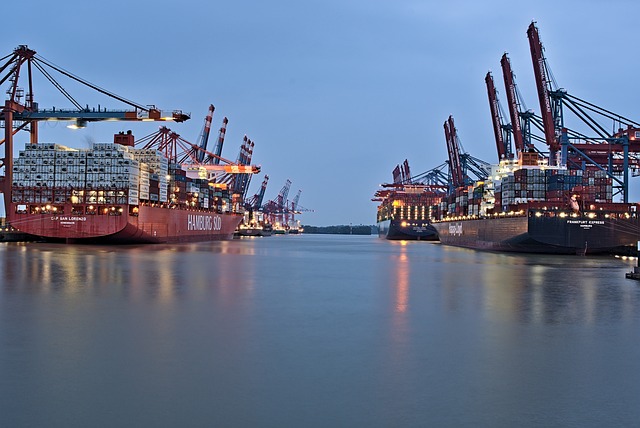
The chemical industry is a dynamic and critical sector that drives global trade and economic growth, having nearly a market size approximately of $220 billion. This makes it one of the world’s largest producers and exporters of chemicals, playing a pivotal role in meeting the demands of various industries worldwide.
In fact, India ranks among the top 10 chemical exporters globally, with major exports including pharmaceuticals, petrochemicals, and specialty chemicals. Within this sector, chemical importers and exporters are fundamental players, bridging domestic supply with global markets.
Understanding the roles, responsibilities, and differences between chemical importers and exporters in India is important for businesses seeking to tap into the growing global chemical trade.
In this blog, we will explore the key distinctions between these chemical exporters in India and global, highlight their contributions to the supply chain, and discuss how businesses can navigate regulatory landscapes to maximize opportunities in this booming sector.
Understanding Chemical Exporters in India
An exporter in the chemical industry is a business or individual that sells and ships chemicals and chemical products to buyers in other countries. Exporters play a vital role in the global economy by ensuring that various chemicals are available to meet the demands of different markets worldwide. The difference between exporter and importer lies primarily in their functions and the direction of their trade activities.
Role and Responsibilities of a Chemical Exporter
- Product Manufacturing and Sourcing: Exporters are responsible for manufacturing or sourcing high-quality chemical products that meet international standards and regulations.
- Compliance and Regulations: They must comply with both domestic and international laws and regulations, including export licenses, safety standards, and environmental guidelines.
- Market Research and Analysis: Understanding the demand in foreign markets is crucial. Exporters need to conduct thorough market research to identify potential buyers and market opportunities.
- Logistics and Shipping: Managing the logistics of shipping chemicals overseas, including packaging, transportation, and customs clearance, is a key responsibility of exporters.
- Financial Transactions: Handling international financial transactions, currency exchange, and ensuring payment security are critical tasks for exporters.
Understanding Importers in the Indian Chemical Industry
An importer in the chemical industry is a business or individual that purchases and brings chemicals and chemical products from foreign suppliers into their home country. The importer’s role is essential for meeting domestic demand and ensuring the availability of chemicals that may not be produced locally.
Role and Responsibilities of a Chemical Importer
- Supplier Identification and Vetting: Importers must identify reliable foreign suppliers and verify their credibility and product quality.
- Compliance and Regulations: Similar to exporters, importers must adhere to local import regulations, including obtaining import licenses, adhering to safety standards, and ensuring the proper handling of hazardous materials.
- Market Demand and Forecasting: Understanding domestic market demand and forecasting future needs are crucial for importers to maintain adequate supply levels.
- Logistics and Transportation: Coordinating the transportation, warehousing, and distribution of imported chemicals is a key responsibility.
- Cost Management: Importers need to manage costs related to import duties, tariffs, and currency fluctuations to maintain profitability.
Core Differences Between Exporters & Importers in the Chemical Industry

The primary difference between exporter and importer in the chemical industry lies in their trade direction. Exporters focus on selling and shipping products to foreign markets, while importers concentrate on purchasing and bringing products into their domestic market. Other differences include their market research focus, compliance requirements, and logistical challenges.
Market Research
- Exporters conduct market research to understand the demand and regulatory environment in foreign markets.
- Importers focus on understanding domestic demand and finding foreign suppliers that can meet this demand.
Compliance
- Exporters must navigate export regulations, which may include obtaining export licenses, adhering to international safety standards, and ensuring proper labeling and documentation.
- Importers need to comply with import regulations, including import licenses, safety standards, and customs clearance procedures.
Logistics
- Exporters handle the logistics of shipping products overseas, which involves managing transportation, packaging, and customs clearance.
- Importers manage the logistics of bringing products into their home country, including warehousing, distribution, and compliance with domestic transportation regulations
Also Read: 9 Latest Technology Trends Shaping the Chemical Sector.
Import Information for Importers in Chemical Industry
For businesses considering becoming importers, having the right import information is crucial, which includes details about regulations, supplier credibility, product quality, and market demand. Accurate import knowledge helps importers make informed decisions and avoid potential pitfalls.
Highly Significant Import Information
- Regulatory Requirements: Understanding import regulations, including necessary licenses, safety standards, and documentation requirements, is essential for compliance.
- Supplier Verification: Verifying the credibility and reliability of foreign suppliers is critical to ensure product quality and avoid fraudulent transactions.
- Market Demand: Analyzing domestic market demand helps importers forecast future needs and maintain adequate supply levels.
- Logistical Considerations: Efficient logistics management, including transportation, warehousing, and distribution, is necessary for timely and cost-effective imports.
Laws & Regulations for Chemical Importers & Chemical Exporters in India
Importers and exporters in the Indian chemical industry must adhere to a comprehensive set of laws and regulations to ensure the safe and legal export of chemical products. These regulations are primarily governed by the Directorate General of Foreign Trade (DGFT), which outlines specific requirements under the Foreign Trade Policy (FTP). Chemical exporters must obtain an Importer Exporter Code (IEC) from the DGFT, which is mandatory for all export activities.
Additionally, importers and exporters need to comply with the provisions of the Chemical Weapons Convention Act, 2000, which restricts the export of chemicals that can be used to produce chemical weapons. Certain chemicals are classified under Schedule 1, 2, or 3 of the convention, and their export is either prohibited or tightly controlled.
The Hazardous Waste (Management and Handling) Rules, 1989, also play a crucial role, as they regulate the handling, storage, and export of hazardous chemicals. Exporters must ensure proper labeling, packaging, and documentation to meet international safety standards.
Moreover, the Central Insecticides Board and Registration Committee (CIBRC) oversees the export and import of agrochemicals, requiring exporters to obtain necessary registrations and clearances.
Non-compliance with these regulations can result in severe penalties, including fines, imprisonment, and the suspension of export licenses. Therefore, understanding and following these laws is essential for chemical exporters in India.
Major Exports of India in the Chemical Industry
India is a significant player in the global chemical industry, with major exports of India including a wide range of chemical products. The country’s chemical industry is diverse, encompassing sectors such as pharmaceuticals, petrochemicals, agrochemicals, and specialty chemicals.
Major Chemical Exports from India
- Pharmaceuticals: India is one of the largest exporters of pharmaceuticals globally, known for its generic drugs and active pharmaceutical ingredients (APIs).
- Petrochemicals: The petrochemical sector, including products like polymers, plastics, and synthetic fibers, is a major contributor to India’s chemical exports.
- Agrochemicals: India exports a variety of agrochemicals, including pesticides, herbicides, and fertilizers, to support agricultural activities worldwide.
- Specialty Chemicals: Specialty chemicals, used in industries such as textiles, paints, and coatings, are another significant export category for India.
For businesses considering entering the chemical import or export market, having accurate import information, understanding regulatory requirements, and effectively managing logistics are crucial for success. Additionally, India’s significant contributions to the global chemical industry through major exports of India highlight the country’s importance in this sector.
By understanding the roles and responsibilities of exporters and importers, businesses can navigate the complexities of the chemical industry and capitalize on the opportunities presented by global trade.
Also Read: How is AI in Chemical Industry Changing Manufacturing Practices?
Future Challenges for Indian Chemical Exporters
The Indian chemical industry is vital, but exporters face tough challenges. I’ve seen these issues for 25 years. Indian firms navigate a complex global market. Let’s explore these challenges and how to overcome them.
What’s Holding Back Chemical Exports?
- Global Slowdown Hurts: Global demand is weak, and excess capacity exists. Indian firms become less competitive now. Exports fell 4% yearly; trade deficits widen.
- Interest Rate Issues: The Interest Equalisation Scheme (IES) ended in December 2024. This hurts exporters who need affordable loans. Extending the IES is essential for survival.
- Quality Must Be Consistent: Global buyers demand top-notch products. Indian exporters must maintain consistent quality. This builds trust and secures future sales.
- Money Matters are Tight: Raw material costs fluctuate constantly. Supply chains face disruptions and drive up costs. Competition increases financial pressure as well.
- Tough Global Competition: Budget 2025 recognizes global economic issues. Geopolitical tensions and cheap Chinese exports hurt. Competition is fierce in every market.
- APAC Demand is Down: Demand in Asia-Pacific weakens significantly. Oversupply may exist until 2025; China impacts supply. This affects export volumes and profits.
How Can Exporters Succeed?
- Embrace New Tech: Adopt advanced technologies for efficiency. Modernize operations and reduce production costs.
- Ensure Top Quality: Implement strict quality control measures. Meet international standards consistently.
- Build Compliance: Create robust compliance frameworks. Adhere to all global regulations carefully.
- Focus on Sustainability: Adopt eco-friendly practices to become greener. Sustainability appeals to global buyers today.
Elchemy: One-stop Solution for Chemical Importers & Exporters
Elchemy is revolutionizing the chemical industry by offering comprehensive solutions for both importers and exporters. Their unique platform connects international buyers with high-quality Indian manufacturers, simplifying the complexities of global chemical trade. With a strong focus on leveraging technology, Elchemy ensures seamless operations, efficient supply chain management, and enhanced customer experiences.
For importers, Elchemy provides a robust system for real-time tracking, ensuring transparency and trust in every transaction. Their Digital Order Management Solution (DOMS) streamlines operations, allowing for effortless communication and customized solutions tailored to meet specific industry challenges. This technology-driven approach helps importers gain unparalleled visibility and efficiency in their supply chain operations.
Exporters benefit from Elchemy’s vast network and deep understanding of India’s manufacturing capabilities. By partnering with a wide range of global suppliers, Elchemy ensures that exporters can meet the international demand for chemicals with ease. Their commitment to quality and competitive pricing, supported by rigorous quality control and advanced technology, helps exporters maintain high standards while optimizing costs.
Elchemy’s mission to transform the global chemical industry through technology and innovation makes it an invaluable partner for both importers and exporters seeking to navigate the complexities of chemical distribution and custom manufacturing effectively.
For more information, you can contact the Elchemy support team.











